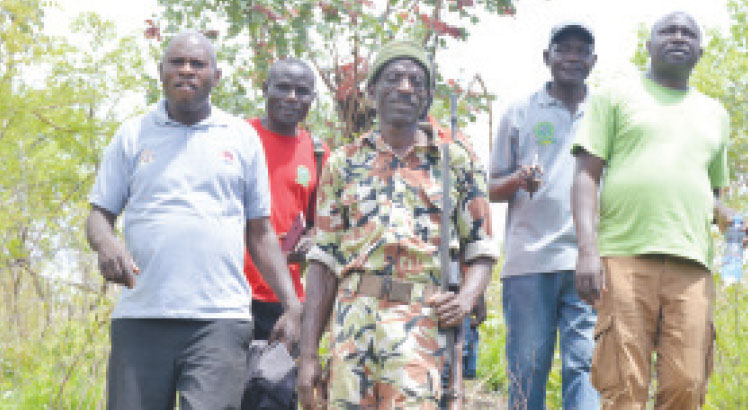Community conservation efforts ease pressure
Three years ago, Malawi moved from a country of concern to a shining example after a crackdown on illegal wildlife trade perpetrated by a notorious Chinese gang resident in the country, but operated internationally. This was a dent on Malawi’s image as it was blacklisted as a hotspot for wildlife crimes.
By 2021, 10 members of what is called the Lin-Zhang syndicate were convicted and sentenced for wildlife offences, including their Kingpin Lin Yun Hua who is serving a 14-year sentence for wildlife crimes and money laundering.
United Kingdom based Environmental Investigation Agency (EIA) executive director Mary Rice hailed Malawi for this achievement, according to information extracted on her organisation’s website.
Rice said: “Following years of concerted efforts and overcoming countless obstacles, this small nation has demonstrated how, with political will and determination, to dismantle one of Africa’s most prolific organised international crime syndicates.
“Fighting crime on this scale demands sophistication, collaboration, courage and tenacity. Malawi should be immensely proud and other African countries currently battling the scourge of illegal wildlife trade would do well to follow this example of global leadership.”

In an interview, Department of Wildlife and National Parks regional manager (centre) Leonard Moyo said these arrests sent a strong message leading to the reduction of serious commercial poaching on the Malawian side.
“We still experience poaching here and there, but not what we experienced in the past before these convictions. We have intensified security; apart from installation of the electrical fence we conduct patrols. More importantly, we have active community participation in conservation. With increased awareness communities have become part of us; hence, very few would want to aid poaching” said Moyo.
The gang did not work alone but recruited locals. The Ling-Zhang mafia was convicted alongside locals. From testimonies in court, locals are lured into this criminal syndicate by money. But with awareness it appears communities are beginning to see the benefits of conserving these protected areas.
“In fact, there used to be a lot of conflict between the department and communities who encroached in the protected area for settlement of poaching. But with our involvement, these conflicts are managed because there is now increased awareness and improved community ownership of the protected areas,” said Jacob Gondwe, chairperson for Ngonga Zone, a community group which works on conservation under Traditional Authority Chikulamayembe.
While there are efforts to fence some parks such as Kasungu National Park the same is nearly impossible for places such as Nyika National Park – the biggest for Malawi as it sits 32 000 square kilometres on land. The national park extends across four districts of Mzimba, Rumphi, Chitipa and Karonga.
The terrain is rough and it would really take a huge fortune to fence the park to improve security of wildlife as well as protect humans from attacks. It is community involvement that is helping to secure wildlife.
According to the park manager Anthony Chikwemba, with community involvement, incidences of serious poaching of wildlife have reduced.
Under the co-management approach community members get 25 percent of revenue collected from these establishments.
Eddings Sugar, chairperson for the Nyika Vwaza Association, a group which represents all communities along/surrounding Nyika and Vwaza protected areas, said with the 25 percent they support communities in different ways as an incentive for their conservation efforts.
“We have managed to provide desks at Linga Primary School and also built a block. We have constructed bridges and culverts. In some communities we have a project to empower people economically. In others we give out legume seeds; soya, beans and groundnuts…with these, community members truly see value in taking part in conservation.
“Nyika has five camps where rangers are stationed and these are far apart in some cases more than 100 kilometres away, making it difficult to fully patrol all areas to secure the park from encroachment.
“So, this is where community involvement becomes key,” added Sugar.





